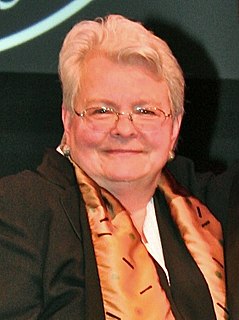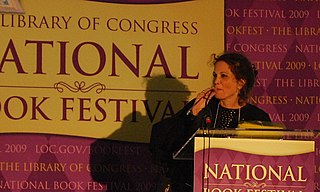A Quote by Erica Jong
When I sit down at my writing desk, time seems to vanish. I think it's a wonderful way to spend one's life.
Related Quotes
Many writers-in-waiting spend a lot of time avoiding the work at hand. The most common way to avoid writing is by procrastination. This is the writer's greatest enemy. There is little to say about it except that once you decide to write every day, you must make yourself sit at the desk or table for the required period whether or not you are putting down words. Make yourself take the time even if the hours seem fruitless. Ideally, after a few days or weeks of being chained to the desk, you will submit to the story that must be told.
Writing is not a job or activity. Nor do I sit at a desk writing for inspiration to strike. Writing is like a different kind of existence. In my life, for some of the time, I am in an alternative world, which I enter through day-dreaming or imagination. That world seems as real to me as the more tangible one of relationships and work, cars and taxes. I don't know that they're much different from each other.
There was a sergeant at a desk. I knew he was a sergeant because I recognized the marks on his uniform, and I knew it was a desk because it's always a desk. There's always someone at a desk, except when it's a table that functions as a desk. You sit behind a desk, and everyone knows you're supposed to be there, and that you're doing something that involves your brain. It's an odd, special kind of importance. I think everyone should get a desk; you can sit behind it when you feel like you don't matter.
Writing helped to have jobs that involved running around, pushing things like dish carts and wheelbarrows. It would be hard to sit at a desk all day, and then come to sit at another desk. Also, it helps to abandon hope. If I sit at my computer, determined to write a New Yorker story I won't get beyond the first sentence. It's better to put no pressure on it. What would happen if I followed the previous sentence with this one, I'll think. If the eighth draft is torture, the first should be fun. At least if you're writing humor.
I think I sit down to the typewriter when it's time to sit down to the typewriter. That isn't to suggest that when I do finally sit down at the typewriter, and write out my plays with a speed that seems to horrify all my detractors and half of my well-wishers, that there's no work involved. It is hard work, and one is doing all the work oneself.
My writing isn't actually guided by issues. I know it seems that way, but I don't sit down and think, Oh, there's this issue I'm bothered about. I only write about things that directly impact my life. When I write, there's a pain that I have to reach, and a release I have to work toward for myself. So it's really a question of the particular emotional circumstance that I want to express, a character that appears, a moment in time, and then I write the play backwards.
For me, the writing life doesn't just happen when I sit at the writing desk. It is a life lived with a centering principle, and mine is this: that I will pay close attention to this world I find myself in. 'My heart keeps open house,' was the way the poet Theodore Roethke put it in a poem. And rendering in language what one sees through the opened windows and doors of that house is a way of bearing witness to the mystery of what it is to be alive in this world.
I cannot find any patience for those people who believe that you start writing when you sit down at your desk and pick up your pen and finish writing when you put down your pen again; a writer is always writing, seeing everything through a thin mist of words, fitting swift little descriptions to everything he sees, always noticing. Just as I believe that a painter cannot sit down to his morning coffee without noticing what color it is, so a writer cannot see an odd little gesture without putting a verbal description to it, and ought never to let a moment go by undescribed.




































